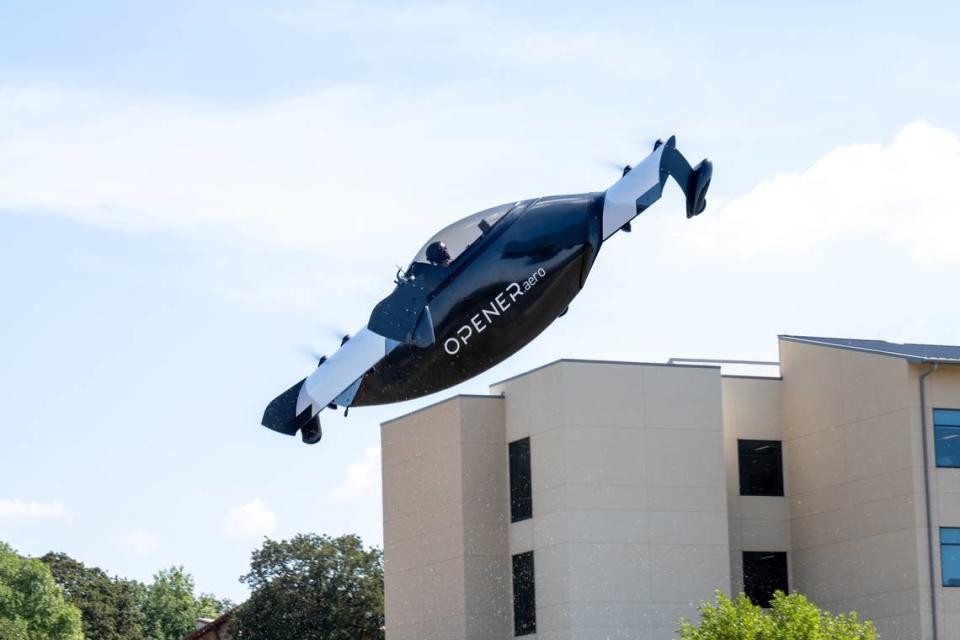This isn’t sci-fi: Flying taxis really are coming to North Texas, sooner than you think
Some call them flying taxis. Others call them air taxis. Many say they could replace helicopters.
The average Fort Worth resident may not know what an eVTOL aircraft is, but aviation experts say they are the future of aviation. And Texas could be at the center of it all.
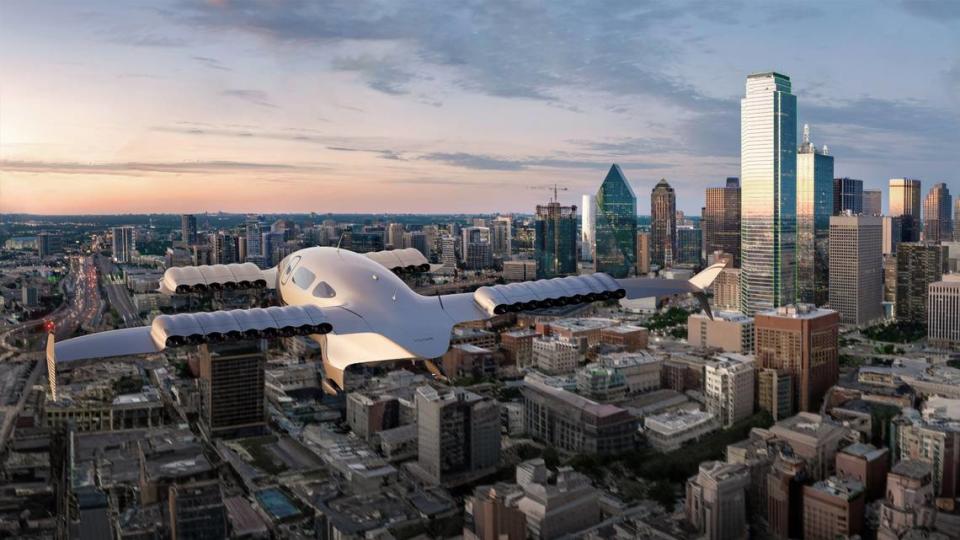
Somewhat like a helicopter, an eVTOL — which stands for electric vertical take-off and landing — launches straight up. But an eVTOL (typically pronounced “ee-vee-toll”) differs from a chopper’s traditional combustion engine by using an all-electric motor.
The eVTOL market could be worth $30 billion or more by 2030 and potentially disrupt the existing $49 billion helicopter industry, experts say.
As the technology develops, Texas is gearing up for the future of eVTOLs flying around its biggest cities.
Last month, Dallas-Fort Worth International Airport announced plans to explore a potential eVTOL program with California-based eVTOL developer Overair. Under the partnership, the companies would assess opportunities for DFW to develop vertiports, or heliports for eVTOLs.
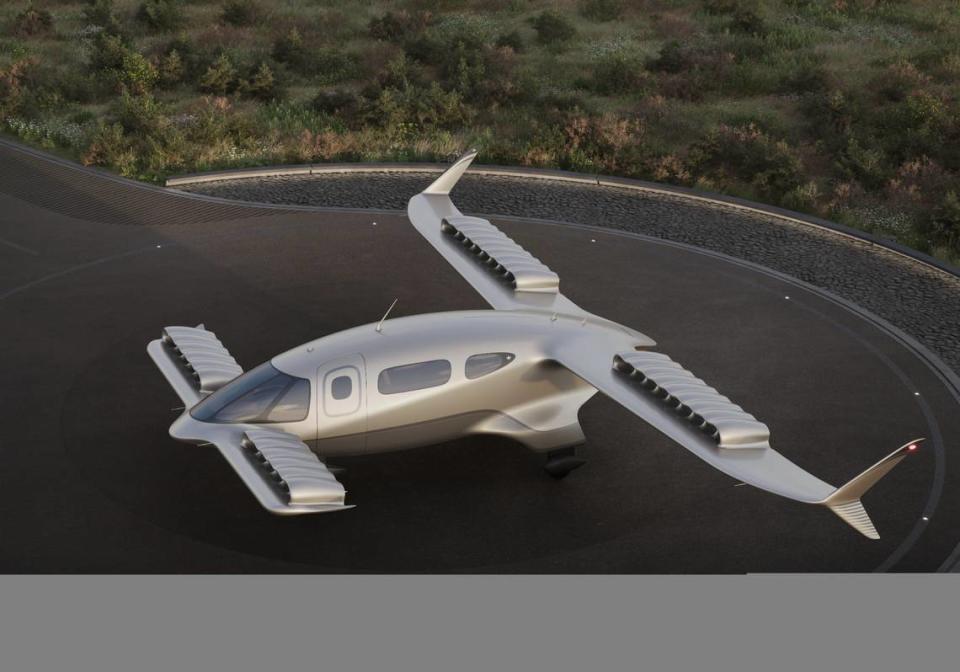
DFW CEO Sean Donohue said during an event in October that the airport plans to integrate urban air mobility by the 2040s, which could include eVTOL technology.
Today's top stories:
→ Buc-ee’s in Fort Worth getting feature drivers have been waiting for
→ Woman, 30, dies in North Texas gas station parking lot after medical emergency
→ H-E-B begins construction on first North Texas location of Joe V’s Smart Shop
🚨Get free alerts when news breaks.
Arlington became the first city in Texas to directly partner with an eVTOL manufacturer in November, when it announced a similar partnership with Overair. Under the agreement, they will assess, develop and launch eVTOL operations at Arlington Municipal Airport.
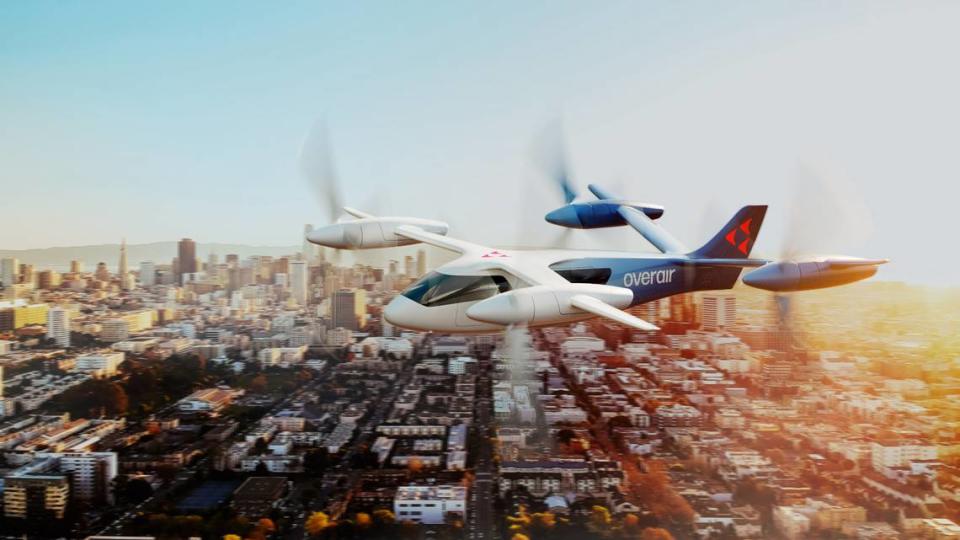
“Electric advanced air mobility is an example of transportation evolving with the needs of a growing society,” Valerie Manning, Overair’s chief commercial officer, said in a release. “We are incredibly excited to be part of driving this transportation evolution in North Central Texas and to expanding our presence in this region, known for its talent and technology.”
In October, Munich-based eVTOL developer Lilium partnered with EMCJet, a Texas-based aviation broker, to assist the private sale of eVTOL aircraft across the state’s major markets.

Memo Montemayor, founder and CEO of EMCJet, said it’s a “fair bet” to see eVTOLs flying in Texas and elsewhere in the U.S. by 2026. They may seem like something out of “The Jetsons,” but Montemayor calls them simply “the Tesla of helicopters.”
“A helicopter is loud. You can hear it miles away, and when it comes close it causes wind,” Montemayor said. “This thing is not going to do that. It sounds very nice and smooth. It’s not going to create wind and dust everywhere. This is going to be very seamless.”
EMCJet had a few prospective clients lined up in October to purchase Lilium’s battery-powered jets. The aircraft take about an hour to charge and have a range of about 120 miles.
Some prospective customers could include current helicopter users, such as hospitals or airlines commuting back and forth between terminals, Montemayor said.
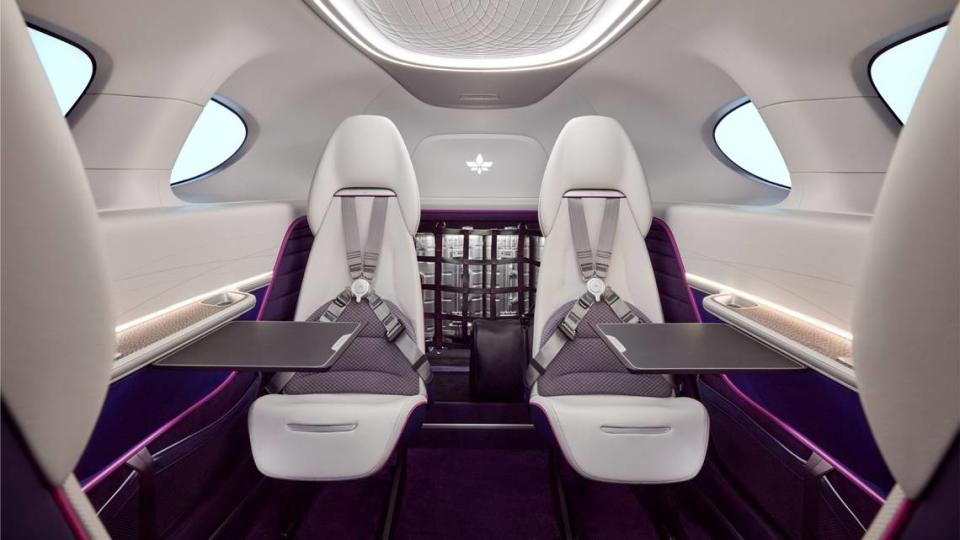
“In a few years, you’re going to see eVTOL jets flying around, picking you up, taking you to places,” Montemayor said. “It’s going to happen. It’s a reality.”
A Lilium eVTOL jet costs a whopping $10 million. And to get one, Montemayor says, people need to “put a deposit in, and get in line.”
Matthew Broffman, head of partnerships and public affairs for Lilium’s Americas division, said the company will initially focus on Texas’ key cities but plans to have jets available across the nation.
Broffman said he hopes the private sale of Lilium jets in Texas will allow the public to understand how the aircraft works and see how quiet it is. That would make it easier for the company to further expand and scale up across the state.
“We anticipate at some point in time there will be a shuttle operator operating Lilium jets in Texas. Folks will be able to go to a vertiport, whether that’s at DFW airport, within downtown Dallas or in the communities surrounding the city,” Broffman said.
Broffman said it’s “too soon to tell” if Lilium could expand its manufacturing from Germany to the U.S., but the company has regular conversations about a potential partnership down the line with Hillwood, the Perot real estate company behind AllianceTexas. Tangible plans or a timeline have not been defined, Broffman said.
The Federal Aviation Administration is working with several eVTOL manufacturers, including Lilium, to get the first electric aircraft in the air commercially by 2025. Pilots must also be certified. The FAA expects air taxis will be flying over cities in larger numbers by 2028.

Meanwhile, Fort Worth-based aerospace and defense company Elbit Systems of America is entering the scene as it participates in eVTOL development. The company announced a partnership with Connecticut-based autonomous vehicle manufacturer LuftCar in October.

LuftCar’s technology allows users to drive the vehicle on the road and fly over long distances utilizing an eVTOL capability. The company aims to fully scale vehicles by the third quarter of 2026 and plans to collaborate with Elbit America on vehicle design during this time.
“Elbit America and LuftCar aim to be on the forefront of green on-demand mobility, designing sophisticated autonomous air and road mobility vehicles with eVOTL capability that will transport people where they need to go and commodities to the last mile delivery,” said Tiffany Nesbit, Elbit America’s vice president of engineering.
